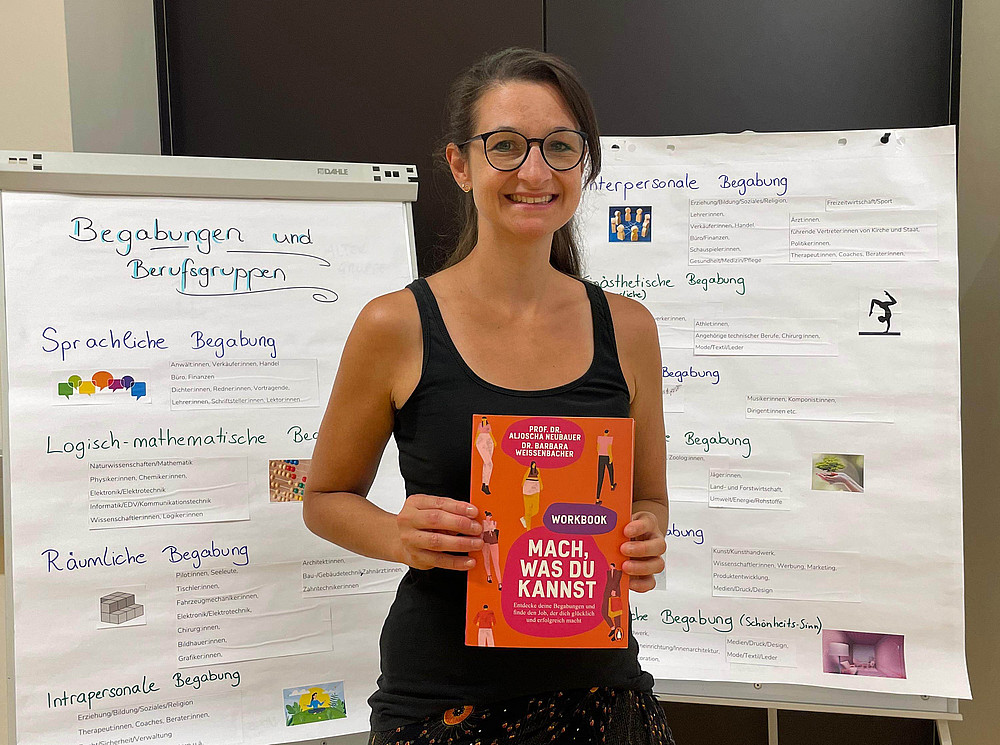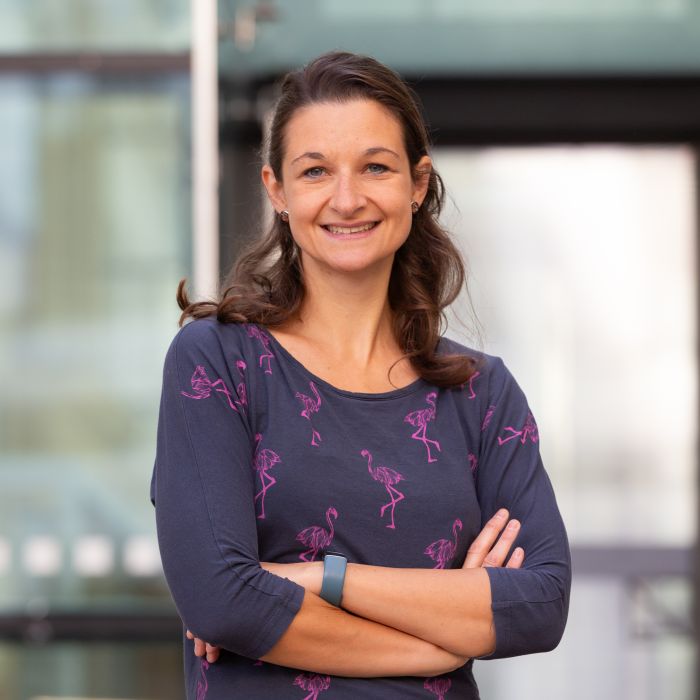"Do what you can!": Workbook helps you find the perfect job

What is actually relevant when choosing a career? This question is the focus of the workbook "Do what you can!" by the two plurality cluster members Aljoscha Neubauer and Barbara Weißenbacher from the Institute of Psychology at the University of Graz. In this interview, Barbara Weißenbacher talks about who the workbook is suitable for and how it can best be used.
How do I find the perfect career?
BARBARA WEIßENBACHER: Choosing a career is based on three pillars - namely the questions "What am I good at?", "What do I like doing?" and "What am I like?". If you can answer these three questions well for yourself, you can also find out which profession suits you best. Our workbook "Do what you can" is a practical supplement to Aljoscha Neubauer's book of the same name (2018). It contains objective aptitude tests and guides you through the entire career choice process. It also provides answers to the questions of how the three pillars of career choice can be combined to form an overall picture. And also how to deal with it if it doesn't fit together so well. Finally, there is a reality check - in other words, tips on what I need in order to actually pursue this career path.
Is it really possible to make specific career recommendations based on psychological self-tests?
We recommend career areas, not specific professions. We make suggestions as to which professions in a particular field might suit the person. Of course, this can change over the course of a person's life. That's why the workbook is not only suitable as support for young people in their first career search phase, but also for adults who would like to reorient themselves. After all, it is no longer the case that you always do the same job from the age of 15 until you retire. People who have achieved everything in their field often want to move on to meaningful work in a completely different professional field, for example to give something back to society.
How do such changes come about?
It is often the case that you decide on a career path at the age of 13 or 14. At this point, you don't have as much information about yourself at your disposal. Girls, for example, are still less likely to go into STEM professions than boys. There are also a lot of stereotypes behind this, which often change later on.
AI is currently changing entire professions. Does the workbook also address this development? Is it even possible to predict which professions will still be relevant in 10 or 20 years' time?
AI is not a new phenomenon, only generative AI is new. Of course, the world of work will change - and we also address this in the book. There are already studies on which new professions will emerge in connection with AI and where AI is likely to replace humans. What is certain, however, is that many of the traditional social professions will remain relatively secure in the future.
What is the best way to use the workbook?
The easiest way to analyse the tests is via the book's website. The workbook itself is based on journaling, so you can work through it for yourself bit by bit. The workbook is suitable for both school and private use.
What is the added value of the workbook?
Ultimately, the book is very much about self-reflection. We know from research that self-assessment, objective aptitude tests and external assessment, i.e. how others see me, don't match up all that well. That's why it's so valuable to get the whole picture.

Mag. Dr.rer.nat. Barbara Weißenbacher
+43 316 380 - 1708
Institut für Psychologie
nach Vereinbarung
https://psychologie.uni-graz.at/de/dips/team/barbara-weissenbacher/
